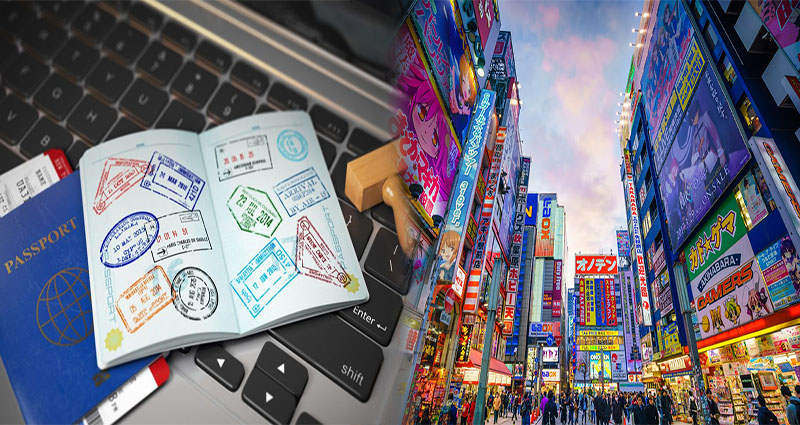If you want to travel to Japan, you will have to go through the process of getting a visa. This is an important step to ensure that you can get into the country legally. Also, if you plan on working in the country, you need to be aware of the legality of doing so.
Check if you can travel to Japan from your country of residence
If you plan to visit Japan for the first time, you should check if you can travel to Japan from your country of residence. The entry requirements vary by type of passport and country.
To find out more, you can visit the Ministry of Foreign Affairs of Japan’s website. For the best chances of being allowed to enter, make sure you get all the documentation you need in advance.
In addition to a valid passport, you may need to have a valid JCOVDEN/Janssen vaccination certificate. You must also provide a negative PCR test.
Travellers to Japan must sign a written pledge to follow the quarantine rules. Upon arrival, you will be fingerprinted and photographed. You will be required to wear face masks when in confined spaces.
Get a visa for Japan
If you’re planning a trip to Japan, you should definitely know the visa requirements. While you can still visit Japan without a visa, you should consider getting one if you want to spend more time in the country.
Aside from a valid passport, you need to make sure you meet the entry requirements. Depending on your nationality, you may need a certain type of visa to enter the country. You can learn more about the requirements by checking the official website of the Japan Ministry of Foreign Affairs.
One of the most important things to remember is to carry a valid passport when traveling to Japan. Travelers should also make sure they take a picture of their passport with a digital copy. This will help if you lose your passport while you’re in the country.
Take a COVID test before leaving your country of residence
If you are planning to visit Japan, you need to take a COVID test before leaving your country of residence. This may be a requirement, depending on your travel history.
The Japanese government has introduced a quarantine for travelers from foreign countries who are at risk of contracting the disease. It has also put measures in place to deal with COVID-19. These include social distancing, regular use of hand sanitizer, and wearing a face mask.
Before entering Japan, all visitors must have a negative COVID-19 test result. However, if you are fully vaccinated, you do not need to undergo a quarantine. Travelers who have been vaccinated three times are exempt from the quarantine.
Bring medicine into the country
As the Japanese government changes its laws without notice, it’s important to check whether the medications you wish to bring into Japan are legal. If you aren’t sure, contact your local healthcare provider or the Ministry of Health, Labour and Welfare. They have the most current information.
A few common over-the-counter medicines in the US are illegal to bring into Japan. These include stimulants, inhalers, and certain prescription medicines.
Prescription medicines are generally allowed in Japan, but there are restrictions. You must have a valid prescription with the correct dosage. The prescription must be legible and must include your doctor’s name and contact details.
Reduce waiting time
If you are going to Japan, there are a number of things you can do to reduce waiting time. These include getting a physical vaccination certificate and completing the quarantine procedure in advance.
The Ministry of Health, Labour and Welfare has a website detailing the different requirements for visiting Japan. They also have an app that you can download to your smartphone that helps you find the right information.
The first thing to do is find out whether you need a visa to visit Japan. Residents of the United States can travel for up to 90 days without a visa. However, you may not be able to visit Japan if you do not have a proper employment visa.
Legality of working in Japan
Aside from the awe-inspiring nature of the country, Japanese work culture has evolved in recent years. In addition to the usual suspects like Sony and Nintendo, there are a slew of start-ups that aren’t afraid to take the initiative.
The Japanese government is actively working with companies to promote a healthier workplace culture. To get there, the central government is launching the Work Style Reform Law, a law that mandates better health for workers and better pay for employers.
The government hopes to transform the negative stigma associated with working in Japan. Some of the most laudable changes are to improve employee health, reducing commuting time and instituting paid vacations. Despite these initiatives, one in four workers in Japan admitted to working more than 80 hours a month.












